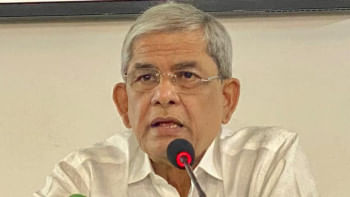Indira urges Sadat to persuade Yahya

May 23, 1971
NIXON-KISSINGER CONVERSATION
On May 23, 1971, American President Nixon had a discussion with his Assistant for National Security Affairs Henry Kissinger as to the situation in Pakistan. Kissinger informed the president that Indians were massing troops at the Pakistan border, and that he told Keating, American ambassador to India, to tell the Indians about the US's strong opposition to military action.
In reply Nixon said, "We certainly will; if they go in there with military action, by God we will cut off economic aid."
"That is the last thing we can afford now to have the Pakistan government overthrown, given the other things we are doing," Kissinger added.
"And there is absolutely no justification for it—they don't have a right to invade Pakistan no matter what Pakistan does in its territory. Besides the killing has stopped," Kissinger continued.
Nixon commented, "It has quieted down."
Kissinger replied, "Oh yes. It may not be a tenable situation in the long term, but again that is not for India to decide."
INDIRA GANDHI'S MESSAGE TO SADAT
Indian Prime Minister Indira Gandhi sent a personal message to Egyptian President Sadat which was understood to be primarily concerned with the grave situation in Bangladesh and its consequent repercussion on the Indian sub-continent. It was believed that Indira Gandhi had appealed to Sadat to use his good offices to persuade Pakistan President Yahya Khan to stop the bloodshed in Bangladesh and assure security to its people.
RESISTANCE CONTINUES
Bangladesh Liberation Forces seized a passenger steamer, Rocket, and sentenced 17 non-Bengalee on board to death following a the verdict of people's court, reported Associated Press (AP). This indicated resistance was continuing in East Pakistan despite Pakistan Army's claims of crushing it, AP added. The vessel was operated by a private Pakistani river service. It was further reported that such incidents maintained a "climate of terror" preventing politicians from collaborating with the regime and frightening West Pakistani civil servants who had been assigned to work in East Pakistan. The Liberation Forces were also seizing barges and burning cargoes of jute on their way to market towns.
BHUTTO'S SOLUTION
Zulfikar Ali Bhutto, leader of West Pakistan's majority party, warned today that Pakistan was in danger of disintegration unless a quick political solution was found for the crisis in East Pakistan.
"If the situation in Pakistan continues to deteriorate, and events are moving fast," Bhutto told a group of newsmen, "We cannot guess what will happen. The economic crisis in Pakistan was alarming even before the events in East Pakistan. The solution is urgent and it can only be found by the leaders and representatives of the people."
"To insist here that the elected representatives of the people are power hungry in wanting to assume office is like calling President Nixon power hungry for wanting to occupy the White House after he was elected," Bhutto said.
"On Dec 7 the people made their choices and the result was three forces in the country--the government, the Pakistan People's Party and the Awami League. Now the Awami League is banned so there are only two forces. We must accept that political reality."
Bhutto called for a moratorium on foreign debt repayment.
"There is a food crisis. There is labour unrest. There is total loss of confidence on the part of the peasantry. There is a fall in production with no immediate likelihood of improvement. We speak a lot in this country about the hostile foreign press. Well, if we want a better press we must have a nation which is not a graveyard in the community of nations," said Bhutto
Shamsuddoza Sajen is a journalist and researcher. He can be contacted at [email protected]

 For all latest news, follow The Daily Star's Google News channel.
For all latest news, follow The Daily Star's Google News channel. 



Comments